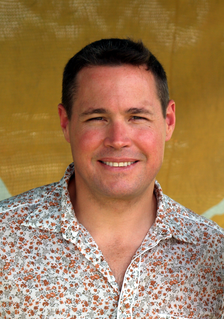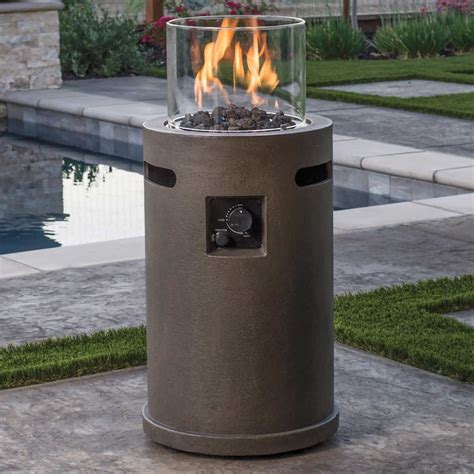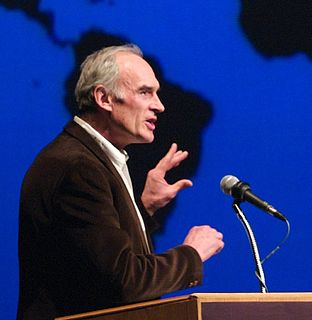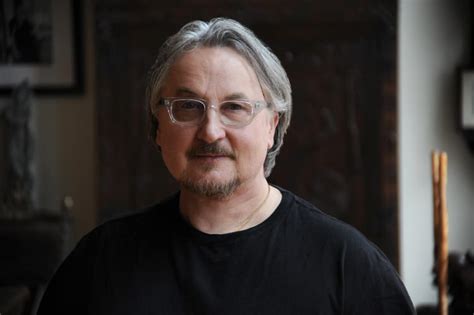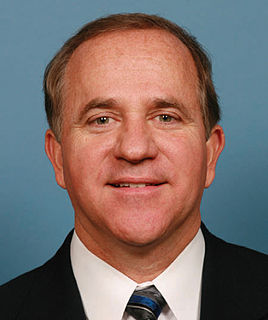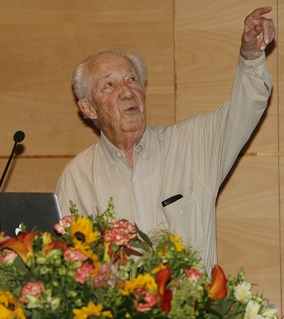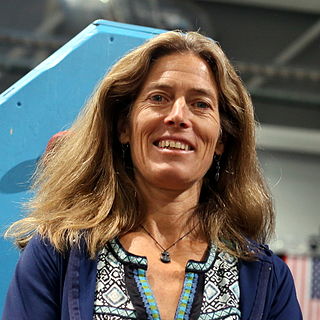Top 613 Pollution Quotes & Sayings - Page 9
Explore popular Pollution quotes.
Last updated on November 23, 2024.
Every day I get to 'Think' and work on everything from digitizing electric grids so they can accommodate renewable energy and enable mass adoption of electric cars, helping major cities reduce congestion and pollution, to developing new micro-finance programs that help tiny businesses get started in markets such as Brazil, India, Africa.
Contempt for science could perhaps depend on the fact that, science hasn't been able to solve any of our basic problems, for example the environmental pollution or the problems with HIV and AIDS. This is the worst disease of our time, and scientists are lost. I believe that many people are disappointed with science when the answers we need are not delivered.
I spent my time drinking and staring at a television in the airport bar. More death and destruction. Crime. Pollution. All the news stories were telling me to be frightened. All the commercials were telling me to buy things I didn´t need. The message was that people could only be passive victims or consumers.
The true cost of the pollution that is being dumped into the atmosphere and manifests itself in our sick children dealing with asthma or older folks dealing with heart and lung disease from the pollutions created by the burning of these fossil fuels, may not be reflected in the prices of fossil fuels, but that does not mean we aren't paying a high price for them.
Many scientists would argue that we are now in what is called Extinction, and it's caused by this perfect extinction storm: climate change, habitat loss, pollution, unsustainable exploitation of species and habitat resources, and of course, human population explosion. All of these factors work together and conspire to drive a species to extinction on our planet, every half an hour.
There are many who still do not believe that global warming is a problem at all. And it's no wonder: because they are the targets of a massive and well-organized campaign of disinformation lavishly funded by polluters who are determined to prevent any action to reduce the greenhouse gas emissions that cause global warming out of a fear that their profits might be affected if they had to stop dumping so much pollution into the atmosphere.
Perhaps the simplest example is a synthetic plastic, which unlike natural materials, is not degraded by biological decay. It therefore persists as rubbish or is burned-in both cases causing pollution. In the same way, a substance such as DDT or lead, which plays no role in the chemistry of life and interferes with the actions of substances that do, is bound to cause ecological damage if sufficiently concentrated.
Ordinary Americans can't pollute for free. You can't dump your trash on the sidewalk or throw all your refuse into your neighbor's yard. I don't understand why corporate polluters should be allowed to dump megatons of carbon, the most dangerous pollution in the history of the world, into our thin shell of an atmosphere, and not pay a penny to do it.
But to truly transform our economy, protect our security, and save our planet from the ravages of climate change, we need to ultimately make clean, renewable energy the profitable kind of energy. So I ask this Congress to send me legislation that places a market-based cap on carbon pollution and drives the production of more renewable energy in America.
We have lots of other problems with plastic in our oceans. There are five different big gyres of plastic out in the ocean. There are problems with air pollution around the country that we need to deal with, and around the world. We have a great many problems to overcome, so I work on a lot of different boards trying to help in those important areas.
When you look at what has happened over the last few decades the natural fluctuations point in the opposite direction of what has actually occurred. When they run the models and plug in the man-made pollution, the correspondence is exact. Beyond that, the scale of natural fluctuations has now been far exceeded by the impact of man-made global warming.
My father gave me this poster from National Geographic back in the very early 70s, so I was a young teenager. It showed how man polluted his world. And the issues that they talked about, whether it was water pollution, air, or terrestrial... The issues that they talk about on this poster are still very much present today.
The next decade will perhaps raise us a step above despair to a cleaner, clearer wisdom and biology cannot fail to help in this. As we become increasingly aware of the ethical problems raised by science and technology, the frontiers between the biological and social sciences are clearly of critical importance-in population density and problems of hunger, psychological stress, pollution of the air and water and exhaustion of irreplaceable resources.
I don't want to die and leave a few sad songs and a hump in the ground as my only monument. I want to leave a world that is liberated from trash, pollution, racism, nation-states, nation-state wars and armies, from pomp, bigotry, parochialism, a thousand different brands of untruth and licentious, usurious economics.
We allow it to be dumped into this community asset, which is our one and only atmosphere. So that has to change, and there's really only one entity that can do that. So we have proposed a cap-and-trade system to stop that unlimited pollution, to use the forces of the market to efficiently allocate scarce permits to allow CO2 into the atmosphere. That's just one of 500 things we need to do, but it's probably the granddaddy of them all.
My innovation message, specifically including energy, happened to be the same week that on Monday and Tuesday I announced the Breakthrough Energy Venture Group. Then on that Tuesday afternoon, in December, was when I sat down with him. I explained the US has great science here, this is where the market for these things is going to be. It connects to less pollution, it connects to U.S. jobs, it connects to security, not needing the energy coming from far away.
Subsidies for the oil, gas and coal industries are projected to cost taxpayers more than $135 billion in the coming decade. At a time when scientists tell us we need to reduce carbon pollution to prevent catastrophic climate change, it is absurd to provide massive subsidies that pad fossil-fuel companies' already enormous profits.
Like most problems with technology, pollution is a problem of scale. The biosphere might have been able to tolerate our dirty old friends coal and oil if we burned them gradually, but how long can it withstand a blaze of consumption so frenzied that the dark size of this planet glows like a fanned ember in the night of space.
I would see my hometown, Los Angeles, change. Green space and orange groves gave way to cement, freeways flooded with traffic, and air pollution, all in the name of "progress." I felt like I was losing my home. It had a profound effect on me, and I realized just how important nature was to my spirit, my soul, my point of view.
Remember that the problem is bigger than the car you drive or the types of lightbulbs in city hall. We need a fundamental shift away from dirty fossil fuels that spew carbon pollution. To make that happen, we need to put pressure on our leaders to take the bold actions necessary to move us off dirty sources of energy.
What we know is that the environmental movement had a series of dazzling victories in the late '60s and in the '70s where the whole legal framework for responding to pollution and to protecting wildlife came into law. It was just victory after victory after victory. And these were what came to be called 'command-and-control' pieces of legislation.
We can change our thinking. Rather than viewing the chemical adulteration of our environment and our bodies as the inevitable practice of convenience and progress, we can decide that cancer is inconvenient and toxic pollution archaic and primitive. We can start seeing the creation of carcinogens as the result of outmoded technologies. We can demand green engineering and green chemistry. We can let our systems of industry and agriculture know that they are suffering from a design flaw.
Canada regards herself as responsible to all mankind for the peculiar ecological balance that now exists so precariously in the water, ice and land areas of the Arctic archipelago. We do not doubt for a moment that the rest of the world would find us at fault, and hold us liable, should we fail to ensure adequate protection of that environment from pollution or artificial deterioration.
Air pollution is a threat to health, especially of older persons. It contributes significantly to the rising rates of chronic respiratory ailments. It stains our cities and towns with ugliness, soiling and corroding whatever it touches. Its damage extends to our forests and farmlands as well. The economic toll for our neglect amounts to billions of dollars each year.
No magic bullet, not even the Internet, can save us from population explosion, deforestation, climate disruption, poison by pollution, and wholesale extinction of plant and animal species. We are going to have to want different things, seek different pleasures, pursue different goals than those that have been driving us and our global economy.
The Environmental Protection Agency's first-ever limits on carbon pollution from power plants will create clean- energy jobs, improve public health, bring greater reliability to our electric power grid, bolster our national security, demonstrate the United States' resolve to combat climate change and maybe even reduce our utility bills.
Sustainability is not just about adopting the latest energy-efficient technologies or turning to renewable sources of power. Sustainability is the responsibility of every individual every day. It is about changing our behaviour and mindset to reduce power and water consumption, thereby helping to control emissions and pollution levels.
The only truly dependable production technologies are those that are sustainable over the long term. By that very definition, they must avoid erosion, pollution, environmental degradation, and resource waste. Any rational food-production system will emphasize the well-being of the soil-air-water biosphere, the creatures which inhabit it, and the human beings who depend upon it.
Every day we put another 110 million tons of global warming pollution into the sky as if it's an open sewer, and it's still building up. And the scientists tell us it's a race against time. We've stabilized emissions globally now for the last three years, but they need to start coming down quickly. We've got the momentum, we've got the wind in our sails, we're gonna win this.
To truly rid the oceans of plastic, what we need to do is two things: One, we need to clean up the legacy pollution, the stuff that has been accumulating for decades and doesn't go away by itself. But, two, we need to close the tap, which means preventing more plastic from reaching the oceans in the first place.
You might declare that global warming and energy insecurity, not to mention urban sprawl and pollution, have intensified the sin of indulging one's motoring desires. And I would not argue with that point. You're right. I am a bad man. But over the long term, if you want to develop a new transportation and energy policy, you'd probably want to err on the side of assuming that people won't change much. And it is human nature to like to be empowered.
The chief moral obligation of the 21st Century is to build a green economy that is strong enough to lift people out of poverty. Those communities that were locked out of the last century's pollution-based economy must be locked into the new, clean and renewable economy. Our youth need green-collar jobs, not jails.
The cost of our success is the exhaustion of natural resources, leading to energy crises, climate change, pollution, and the destruction of our habitat. If you exhaust natural resources, there will be nothing left for your children. If we continue in the same direction, humankind is headed for some frightful ordeals, if not extinction.
My vision of a better world would be one under the control of a strong United Nations, one that truly has the support of all countries in the world. Only an effective world government could provide sufficient law and have the power to control the unboundaried destructive forces of pollution and war. I will continue to be a leader in the World Federalist Association.
We know, at least, that this decision (ending factory farming) will help prevent deforestation, curb global warming, reduce pollution, save oil reserves, lessen the burden on rural America, decrease human rights abuses, improve publish health, and help eliminate the most systematic animal abuse in history.
If we could begin to look at water pollution as a human rights violation, and we could begin to look at criminal aspects of this, I think that could be a game changer for many companies who want to not be forthwith and think that they can just hold off in a lawsuit for 10 years, and in the meantime, people are still being poisoned.
That's what I do. I just let Mother Earth use me, in many, many instances, especially when I am working with pollution. She is a very real Spirit - she is your mother, and if you open to Her, she can come in and use you in a way that is very powerful. That is what Mother Teresa has done, by being selfless.
There is no doubt that pollution contributes to the climate changing around us, but what I refuse to do is support a climate tax bill like Waxman/Markey put in place that would have cost farmers and ranchers in the state, that would cost small business the opportunity to grow, that would increase that bills that families pay, $1,700 a year.
Better contraceptives will control population only if people will use them. A nuclear holocaust can be prevented only if the conditions under which nations make war can be changed. The environment will continue to deteriorate until pollution practices are abandoned. We need to make vast changes in human behavior.
It's very important that we expand our use of clean energy and make a long-term commitment to it. Biodiesel and ethanol are better for the environment and for the air we breathe. The use of biodiesel is a positive step toward minimizing pollutive emissions and greenhouse gases. By focusing on school buses, we can affect the health and wellbeing of the people most susceptible to that pollution - our children - today.
I'd been a child during the 1960s when women burned their bras and hundreds of thousands gathered in protests against the Vietnam War. As a climber, I've felt connected to a similar nonconformist culture, one opposed to society's increasing materialism, pollution and corruption. Our approach to the rock—clean, traditional climbing, with the least dependence on equipment—was an extension of this ethical viewpoint.
Acknowledging the physical realities of our planet does not mean a dismal future of endless sacrifice. In fact, acknowledging these realities is the first step in dealing with them. We can meet the resource problems of the world - water, food, minerals, farmlands, forests, overpopulation, pollution - if we tackle them with courage and foresight.
Think about how tangible it would be to the citizens of Washington State to finally have the Hanford nuclear site cleaned up. Think about how tangible it would be to the citizens along the Hudson River to fix that pollution. These are some of the most direct things we can do to benefit our environment.







